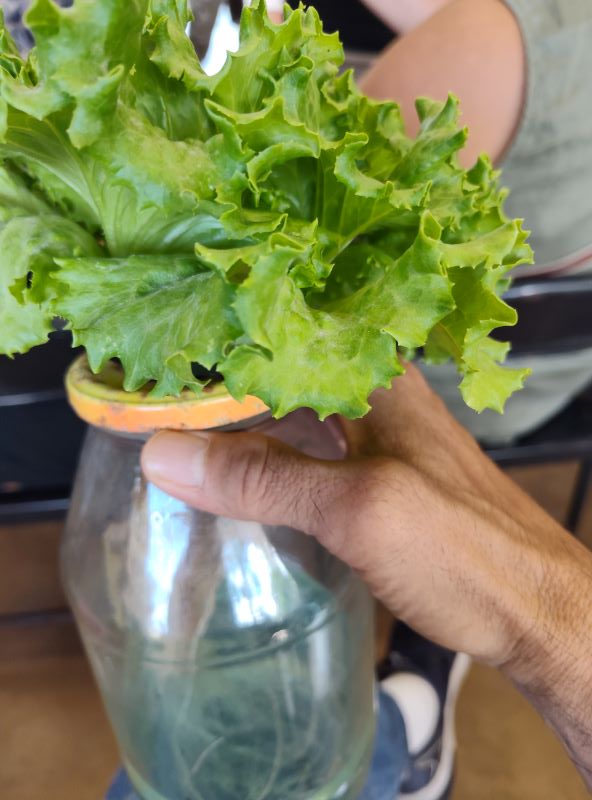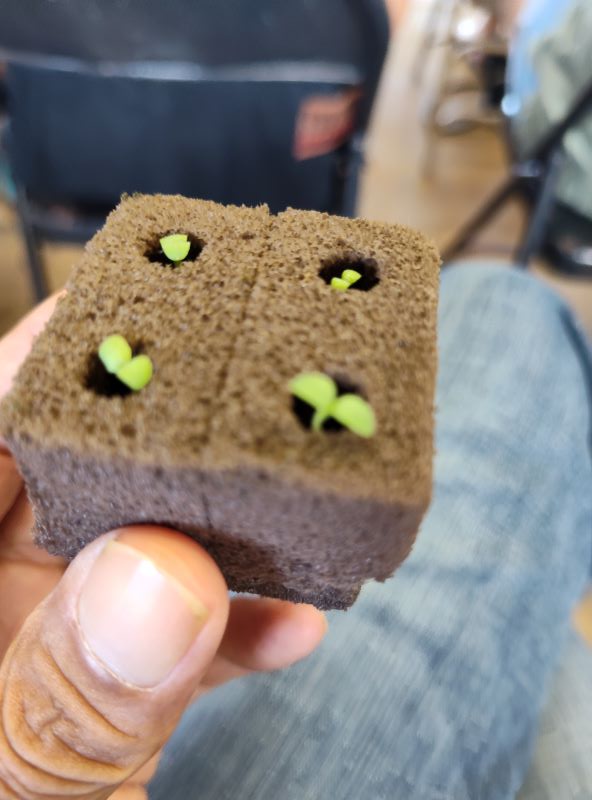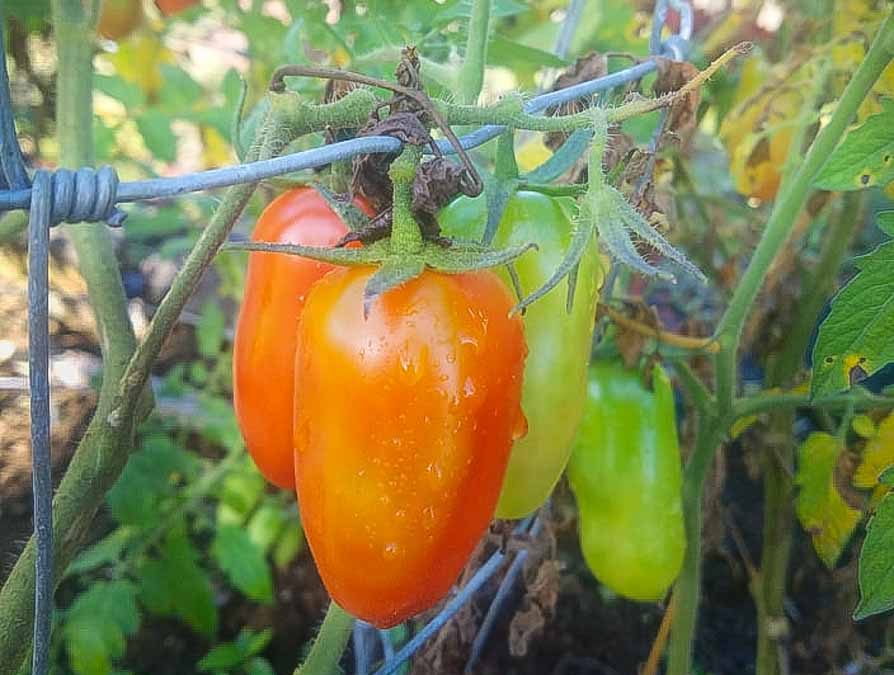Hydroponics in Hawaii – grow your own food easily
At a time when food price increases are on the rise, growing your own food seems to be on everyone’s mind, but is it feasible? I decided to find out if you can grow food on own your and cheaper.
I was not expecting to be convinced with this introduction about growing your own food economically and easy, the hydroponic way. So, I signed up for an introductory course here in East Hawaii taught by a dedicated husband and wife team, Allen and Allyson who graduated from the Ag program with Hawaii Community College. I was surprised to find out in just a short talk that you can learn to grow your own food fast and start up using simple supplies and materials that is inexpensive and accessible. It takes a little bit of determination and effort to get started in the right direction to growing your own food hydroponically.
In this short educational session, I had learned about growing your own lettuce, herbs and other leafy greens in compact spaces using hydroponic systems and fertilizing solutions. In a quick training session, we learned how to grow from start to end using an easy hydroponic system that is low impact and easy from start to actual harvesting..
Take a look below for more information.

The Class Introduction
Allyson is big on community development and her team spent time talking about the hydroponic process. They both offer regular hydroponic orientation classes for beginners to start with some basic materials and share easy to understand ideas on how to grow your own food quickly and cheap.
Next, she gives an overview of the materials and planting process, explaining the germination process, creating the solutions mixes and then transferring the keiki’s (baby plants) to a flow station process that feeds the solution twice daily and absorbed bottom up through these oasis cubes and eventually the plants are transferred into larger containers where the mixed solutions are protected from sun intrusion and eventually kick start the fast-growing process mostly for lettuce products, basil and other smaller leaved greens that can grow in small containers.

Hydroponic done the easy way
After Allyson’s introduction, her carpenter/assembly guy Alejandro. then shows us how to create inexpensive growing containers from plastic storage units that prevent light intrusion into the solutions to prevent algae or bacterial growth. He shares some basic drilling techniques to create easy holes into small plastic container lids and used plastic holders you can sink the baby plants into. A mixed soluble water growing medium of 1oz 8-15-36 and Mag Sulfate with 1 oz of calcium nitrate mixed in with a gallon of water. You then calculate this in gallons size with your container, and you have your solution mix. There is a pre-mixed version called Maxi-grow can be used that is a little more expensive when added to water.
The methodology is called the Kratky Method for the professor who started this utilizing water and nutrients in a hydroponic system.

Starting new plants and germination with simple water spritzing and placing seeds directly into a growing medium

Learning how to grow perennial plants
Her husband, Allen afterwards shared some ideas about growing perennials more traditionally as potted plants for larger scale or leaved production like onions, chard and other large-scale plants like tomatoes or cucumber.
This consisted mostly of using cinder soil, peat moss and dolomite along with mulching above the plant to keep plant moist.
He advises to water the plants once weekly to keep them healthy and using a hundred percent solution mix on the potted plands and rotated with a regular watering schedule.

How to avoid Rat Lung
A major problem here in Hawaii are the slugs and snails that attack most of the leafy greens and need some awareness to detect and prevent.
This includes the following techniques:
Elevating plants in growing beds
Protecting the legs with copper wire and or Vaseline and salt to make it impossible for slugs to pass through.

Daily inspections of plants are part of the growing process to see progress and also checking on slime trails or evidence of slugs on the produce
**if the plants are kept elevated in growing beds that prevent any slug/snail intrusion and protecting the leg tables, then majority of the infestations will be minimized.

Growing your own in Hawaii
Well, this team is really dedicated to growing your own food and developing community around this whole process which is truly commendable in Hawaii. When food is mostly imported here and at high prices, it’s good to know that you can grow and control your own food here even in confined spaces.
Here’s a great introduction process that you can watch about growing greens using hydroponics below at their growing site.
Support local farmers or farm stands
Even if you can’t grow your own for now, you can support local growers on the island that do and visit their farms.
Here’s one farmstand of the founders to visit now
Address: 16-2154 Rainbow Dr, Ainaloa, HI, United States, Hawaii
There are a few more farm stands located in East Hawaii and many more planned in the near future.
To learn more about the process check out their website below for more information
Future projects
Allyson and Allen want to create more growing communities to truly be more self-sustainable and learning to grow and control your own food production. They have initiated a community-based membership to foster more growing opportunities to the community and hopefully want to supply restaurants and markets with successfully grown produce.
To learn more about this process, please check out their website here for more details.

Further reading on growing food in Hawaii
If you want to learn more about growing and sustainability on the island, check out these other posts.
Easy to grow tropical fruit trees in Hawaii
Lessons learned living in Hawaii

Conclusion to growing food by Hydroponics in Hawaii
I found out that you can grow using the hydroponics method in Hawaii and will learn how to do this using a containerized method. It should be an interesting process to see if I can really grow my own food this way with little effort. If you want to learn more about the process, check out the Hydroponics hut website mentioned above for more details.
Thanks to Allyson and Allen for their kokua (help) and community outreach to growing your own food in Hawaii.


Wow! Mahalo for sharing this!!!
Thanks, hope it is helpful